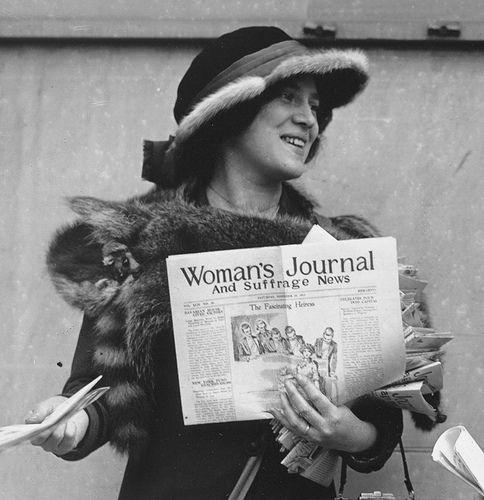
By Mary Hoar, President Emerita, Yonkers Historical Society, recipient of the 2004 Key to History and President Untermyer Performing Arts Council
Monday, August 2nd
August 2, 1912: Thousands of people watched Yonkers firefighters battle a spectacular waterfront fire at the foot of Fernbrook Street in Ludlow between the Hudson River and the railroad tracks. The fire destroyed the Federal Cooperage Company plant and a Waring Hat Company’s warehouse; damage was estimated to be $100,000. The Hudson River Division of the New York Central Railroad was shut down for many hours, and the conflagration endangered the Volvoline Oil Company, the Pure Oil Company and the pleasure crafts at the Hudson Boat Club. Many people crossed the train tracks to get a closer view. A major hindrance to YFD’s fighting efforts was the absence of half the department’s staff; they were on a political outing and out of Yonkers.
August 2, 1941: St. John’s Church, Getty Square, announced they were launching a project to restore St. John’s Cemetery; the cemetery had been the resting place for Yonkers residents beginning in 1783; and had many Revolutionary War soldiers buried there.
Tuesday, August 3rd
August 3, 1639: Three Weckquaskeck chiefs—Fecquemeck, Rechgawae, Packanniens, owners of “Keskeskicl,” signed a contract with Secreatry of New Netherlands Cornelis van Tienhoven. The Wecquaskecks conveyed the tract of land called “Nepperhaem,” the site of present day Yonkers, to the West India Company. In the description, it spoke of the Mohegan village at the mouth of the Neeperah, or rapid waters, as well as other Indian villages along t his beautiful stream. Others were on the easter edge of Boar Hill and a Mohegan castle was on the steep side of Berrien’s Neck or Nipnichsen. The castle was protected by a strong stockade from attacks from New Jersey tribes. Decedents of Chief Tackarew continued to live in Yonkers after the sale to the land to Van der Donck.
August 3, 1922: Several local civic groups praised Yonkers Health Commissioner, Dr. Clarence Buckmaster, for his efforts to rid our city of gypsy camps.
August 3, 1927: Civilian aviator William Mitchell of the Bronx made a forced landing at the Empire City Racetrack. Mitchell, who had run out of gas, damaged his landing gear but was not injured.
Wednesday, August 4th
August 4, 1917: Prominent member of the Woman Suffrage movement Margaret Foley spoke in Yonkers at the invitation of our Yonkers Woman Suffrage Party. One of the few American-Irish Catholic suffragettes from Boston, she was known as the “Grand Heckler” because of her ability to confront anti-suffrage candidates at political rallies. Always stylishly dressed, she once made a solo balloon flight over the Boston area, throwing out suffrage literature from the basket.
August 4, 1935: To celebrate the 296th anniversary of the transfer of Yonkers or Nepperhaem from Native Americans to the Dutch, a huge teepee was pitched on the shores of the Hudson and descendants of the Native Americans reenacted those days.
Thursday, August 5th
August 5, 1926: Alderman John Davis expressed strong opposition to a radio broadcasting station in Yonkers. He was “sure programs broadcast from nearby or distant cities would be ‘blanketed.’” Davis was not alone in his opposition; Sixth Ward Alderman Edward Murray also opposed the venture.
August 5, 1946: Thousands of Yonkers residents listened to Councilman Edith Welty’s interview on CBS national radio about our tercentennial celebrations. Mrs. William Gibbs McAdoo, widow of the former Yonkers resident, interviewed her in an informal chat about our “City of Gracious Living.” A small group of city officials held a “listening party” at City Hall. City Manager Montgomery, Council Fiorillo, Comptroller Kennedy joined with Public Safety Commissioner O’Hara to listen to the interview.
Friday August 6th
August 6, 1946: Rabbi Aaron Kahan, former spiritual leader of Lincoln Park Jewish Center, returned from service as an Army chaplain, and shared two stories from the war. The Nazis posted notices around a Polish city announcing the resumption of services in the synagogue. Instead of being allowed into Temple, however, the people were herded into a truck and never seen again. One elderly man, however, ignored the soldiers’ commands and strode past them into the synagogue. Although all alone, he prayed and read the Torah; when he finished, he carried the Torah in his arms, daring the Nazis to take him. They did not go near him, and he disappeared into the crowd. A second story told of the reopening of services for Jewish soldiers in Mullech, Germany. After the announcement, a German man went to the US Army camp and asked to see the Chaplain. This man, although not Jewish, had taken and hidden Torahs and prayer shawls in his warehouse for his friends and neighbors, and presented them to the chaplain in time for that night’s service!
Saturday, August 7th
August 7, 1916: The longest trolley strike in Yonkers history ended when union and company officials reached an agreement 17 days after conductors and motormen drove their cars into the barn. The agreement required both sides to meet not later than August 20th to discuss wage and working conditions, and specified employees had the right to organize and bargain collectively.
August 7, 1926: A bond was cemented between boys at Leake & Watts and members of the Yonkers Chapter, Order of De Molay, when members of the Yonkers De Molay Chapter were guests at the Leake and Watts Camp at Tivoli. De Molay is an international fraternal organization for boys aged 12 through 21 whose goal is to develop young men into better leaders.
Sunday August 8th
August 8, 1924: Members of the Yonkers Yacht Club created a “river patrol” to guard our waterfront. After the Yonkers Police Department stopped patrolling the waterfront, equipment and several boats had been stolen from the club.
August 8, 1931: Thelma Shiller emerged as the champion swimmer at the Camp Yonkers Swim meet, sweeping the 4-stroke medley, novelty pajama race, “tired swimmer carry race,” and the 50-yard freestyle race..
August 8, 1945: The Securities and Exchange Commission released a report listing the salary of Frederick Klein, President of Alexander Smith and Sons Carpet Company, as $82,750. The median annual salary for American workers that year was $2595.
Questions or comments? Email YonkersHistory1646@gmail.com.
For information on the Yonkers Historical Society, Sherwood House and upcoming events, please visit our website www.yonkershistoricalsociety.org, call 914-961-8940 or email yhsociety@aol.com.





